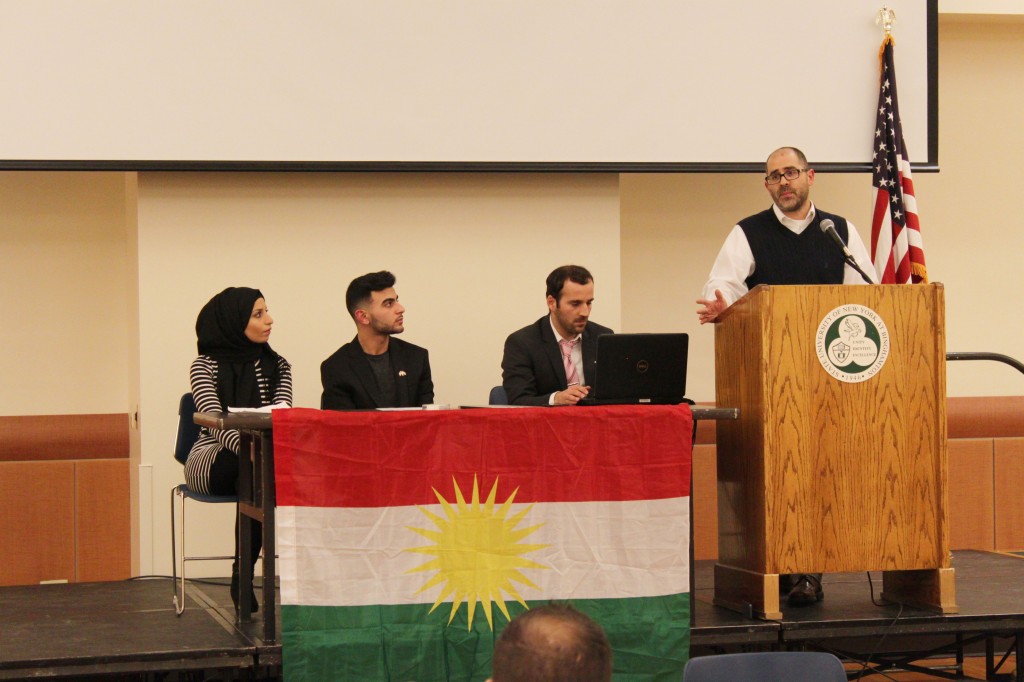
During a moment of silence, students and Kurds from the local Binghamton community reflected on the Halabja Genocide of 1988.
Monday evening marked the 27th anniversary of chemical attack on the Kurdish city of Halabja by the Iraqi government, which killed thousands. The attack was led by Saddam Hussein as part of a larger genocide on the religious minority. The commemoration was organized by the American Kurdish Council (AKC), which added a fundraising component to help Kurdish refugees who are targeted by ISIS today.
“We’re drawing parallels between the Kurds in the past and present,” said Hooman Ibrahim, a junior majoring in business and the president of AKC.
Isaac Kfir, a visiting professor of international affairs and law at Syracuse University, said the international community has a responsibility to help the victims. According to Kfir, one of the most important elements in helping a community recover from a tragedy is reconciliation.
“Communities have to come together,” Kfir said. “This is why I think it is so important to hold these kinds of events: to remind future generations as to what has transpired.”
Karwan Zebari, the director of political and diplomatic affairs at the Kurdistan Regional Government (KRG) in the United States, addressed the crowd via Skype. He spoke about the enduring effects of the chemical weapons used in the genocide. In an environment poisoned by chemicals, the Kurds of Iraq face high rates of cancers and other illnesses. Zebari also described the KRG’s efforts to clean up the environment, rebuild infrastructure and cater to the needs of the Kurdish people.
Sandra Kahlil, a senior double-majoring in political science and Arabic, said it was worthwhile to hear from informed speakers.
“It’s good to see that intellectual people are on the case working and really dedicated to the cause in Washington,” she said.
ISIS has not only taken siege in Syria, but in the Iraqi city Shangal as well, according to Ibrahim, and thousands have been displaced and are in desperate need of food, water and clothing.
“They’re really strained for resources and they’re running out of the necessities so we have to do what we can,” Ibrahim said.
The AKC raised $700 over the past few weeks with bake sales. Food was served at the memorial with a suggested donation of $5 and, according to Ibrahim, the event raised $1,450.
Yael David, a junior majoring Judaic studies, said she believed that it was important for students to learn about the struggles of the Kurdish people.
“The cause of the Kurdish people isn’t so well known, and I think that’s one of the points of this program,” she said. “As someone who isn’t Kurdish, I think it’s important for more who are outside of the Kurdish community to come to these types of events and learn about the cause and the history, and just the state of the Kurds right now.”
Education and remembrance, Ibrahim said, were important to him as well. He emphasized the importance in continuing to commemorate the Halabja Genocide.
“Just because something happened 27 years ago, doesn’t mean it’s not important,” he said. “We live in a society dominated by social media and things have expiration dates. One minute it’s cool to be an advocate for this, and the next minute it’s not. This event is kind of here to say that this still matters and we’re not going to let these events become yesterday’s news.”


